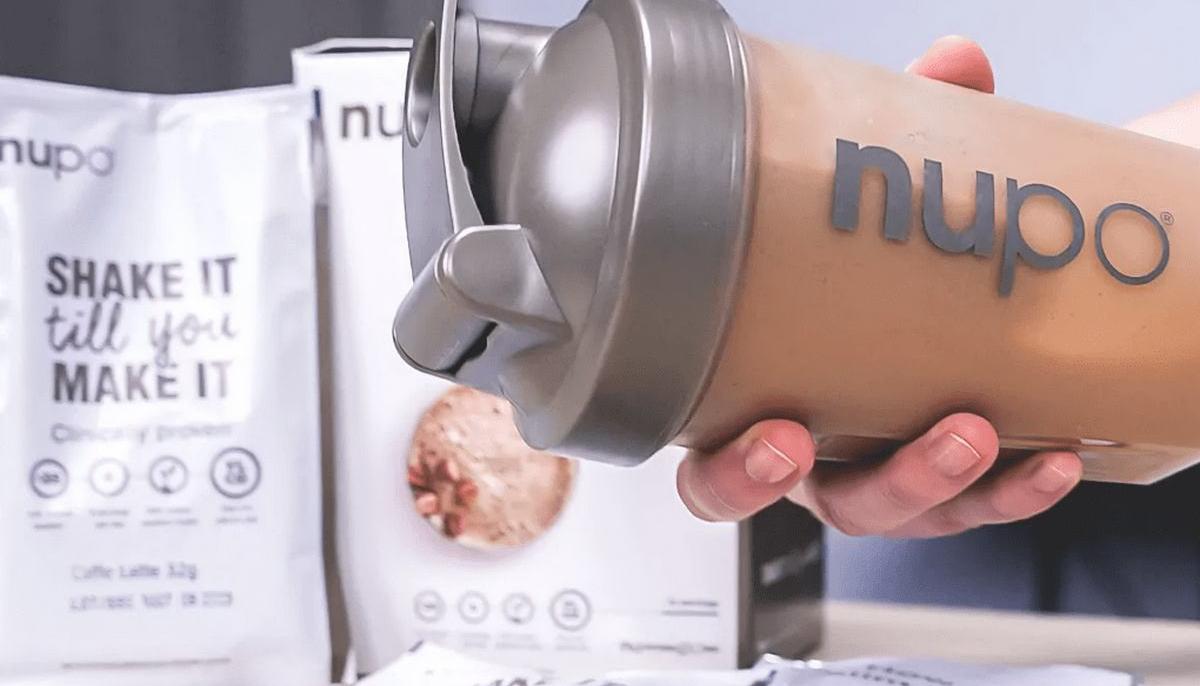Nupo diet - what is it?
The Nupo diet is a low-calorie regimen ( maximum 800 calories per day ) that involves replacing main meals with specially developed shakes to provide the body with the optimal amount of indispensable macro and micronutrients. The main goal of this hypocaloric regimen is to lose weight in a sustainable way, without affecting muscle mass.
The second objective of the regime is to increase the daily intake of liquids by consuming at least 2 liters of water or tea without sugar per day, in addition to the protein drinks specific to the regime. Increasing the liquid intake reduces the feeling of hunger, facilitating the body's adaptation to ketosis (fat burning by the body in order to obtain energy) while ensuring at the same time the good functioning of the kidneys.
Along with the hypocaloric diet , daily exercise accelerates the process of losing body weight by burning fat from adipose tissue to obtain energy. Normally, the body's source of energy is represented by carbohydrates, but low-calorie diets involve changes in the metabolism that begins to consume fats for energy purposes.
Types of Nupo diets
The Nupo diet is versatile and can be adapted according to the needs and preferences of each person without diminishing its benefits.
- People who are looking for a light weight loss, between 2 and 3 kg (5 - 7 pounds), can opt for adherence to a diet for about 10 days
- People who want to lose 10 kg (22 pounds) or more must apply the recommendations of the Nupo diet for a period of time that can be between 4 and 8 weeks depending on the final result that is desired to be obtained.
Once the desired weight is reached, it can be maintained or further reduced with the help of the Nupo 5:2 or 2:5 hypocaloric diet by alternating the days of the hypocaloric diet with days in which normal food is consumed (5 days of the diet with 2 days of normal diet or 2 days of regime followed by 5 days of diet without restrictions).
Another option for long-term maintenance of body weight after reaching the desired value involves replacing one of the main meals of the day with a protein shake based on milk and soy.
How much weight can I lose with the Nupo diet?
The total number of kilograms that can be lost with the help of a low-calorie diet that includes protein shakes varies according to the type of Nupo diet followed and the period of time for which the dietary restrictions are applied .
The clinical studies carried out over time regarding the effectiveness of the Nupo diet after applying it for a period of at least 8 weeks attest to the fact that the weight loss is between 10 and 15% of the patient's initial weight before starting the hypocaloric regimen. Thus, a person who weighs 75 kg (165 pounds) at the beginning of the diet can reach 64-67.5 kg (143 pounds) at the end of the 8 weeks of the diet.
Rapid weight loss and the effects on the body
- Rapid weight loss through drastic unbalanced diets results in depriving the body of vitamins and minerals essential for good functioning, in the absence of which the feeling of permanent fatigue, hair loss, bone fragility and anemia may appear .
- The use of diuretics for rapid weight loss can cause acute dehydration and electrolyte imbalances accompanied by constipation, headache, dizziness or heart rhythm disorders.
- Hypocaloric diets applied without the advice of a nutritionist that are not accompanied by regular physical exercises can have the effect of weight loss, but this is determined by the loss of both adipose tissue and muscle mass from the whole body, with unwanted side effects including at the heart level .
- Starvation favors the appearance of biliary dyskinesia or "lazy bile" with the accumulation of cholesterol-rich bile fluid in the form of sludge . Rapid weight loss through accelerated metabolism of fat reserves causes increased excretion of cholesterol at the biliary level, increasing the risk of gallstones.
Disadvantages of quick results diets
After completing the restrictive regimen, along with the return to the normocaloric diet, many people notice a sudden increase in weight (the yo-yo effect), which in certain situations can exceed the initial one, before the regimen. This yo-yo effect is explained by the fact that the body has a tendency to restore fat reserves more quickly in relation to muscle mass, the kilograms regained after the regime being mostly represented by fat tissue.
Another disadvantage of drastic diets that result in a significant loss of body weight refers to the appearance of unsightly skin, prone to mycoses.
Nupo diet contraindications
The main categories of people for whom the Nupo diet is not recommended include:
- Pregnant and lactating women
- The children
- teens
- elderly
- Overweight people who associate metabolic or cardiovascular diseases
- People who are allergic to soy and milk (contained in protein shakes).
Why is it recommended to consult a doctor or nutritionist?
The main advantage of adopting a diet to lose weight on the recommendation of a nutritionist, diabetologist or surgeon with bariatric specialization is the possibility of periodic evaluation of the progress achieved, by monitoring the nutritional status by qualified medical personnel, who can individualize the diet in accordance with the specific needs of each people . Before starting the nutrition program, the doctor requests a set of laboratory investigations through which the patient's state of health is evaluated and possible associated nutritional deficiencies are detected.
The purpose of the nutrition consultation is to establish the final goal of the intervention (target weight at the end of the regimen), guide the treatment plan and educate the patient about its implementation. Under the careful guidance of the doctor, the patient can learn a series of healthy eating habits, which, adopted in the long term, have the effect of improving the quality of life and preventing the risk of cardiovascular diseases and metabolic imbalances such as diabetes.
It is recommended that after finishing a low-calorie diet, the return to normal-calorie food should be carried out gradually in a responsible manner, in order to prevent the re-accumulation of excess weight. The correct application of the recommendations included in the Nupo diet, associating them with lifestyle changes that include regular physical exercise and limiting the consumption of saturated fats, sugars and alcohol, prevents the yo-yo effect (putting the lost weight back on). and reduces the long-term risk of obesity-related pathologies.







